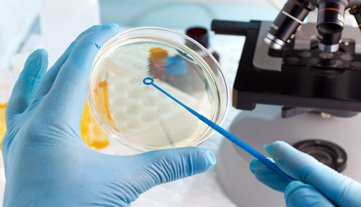A Full Set of Laboratory Tests for the Diagnosis of Prostatitis
At our 3D Prostatitis Clinic, we use the following a full set of laboratory tests
for the diagnosis of prostatitis:
1) Prostate Massage: pain and discomfort during prostate massage.
2) Digital Rectal Examination (DRE): DRE is used to confirm prostate size, quality, sclerosis, and blockage and calcification.
3) EPS Results: the quantity of WBC is increased and lecithin reduced. The EPS report has two main indicators. First, normal Lecithin levels should be above 75% (+ + +). Second, normal WBC levels, should be less than 10/HP. The WBC of the semen is increased and the quality of sperm is reduced.
4) Pathogen Cultures: detecting causative pathogens in prostate fluid and semen culture. Each infection has its special set of pathogens. The common causative pathogens of urinogenital infection include: Staphylococcus Aureus, Hemolytic Streptococcus, Gonococcus, Bacterium Aeruginosum, Corynebacterium, Escherichia Coli, Proteus, Enterococcus, Klebsiella, Tubercle Bacillus, Chlamydia, Mycoplasma, Virus, Fungus, and Trichomonas, etc.
5) Ultrasound: When checked by ultrasound prostate infections are commonly indicted by enlarged prostates, uneven echoes, shadows, calcifications, cysts, enlarged seminal vessels, and other abnormal changes.
6) Blood Tests: ELISA Tests, etc.
The urine test is not reliable for the diagnosis of prostatitis. In most cases, the urine of patients suffering from prostatitis will test normal.
